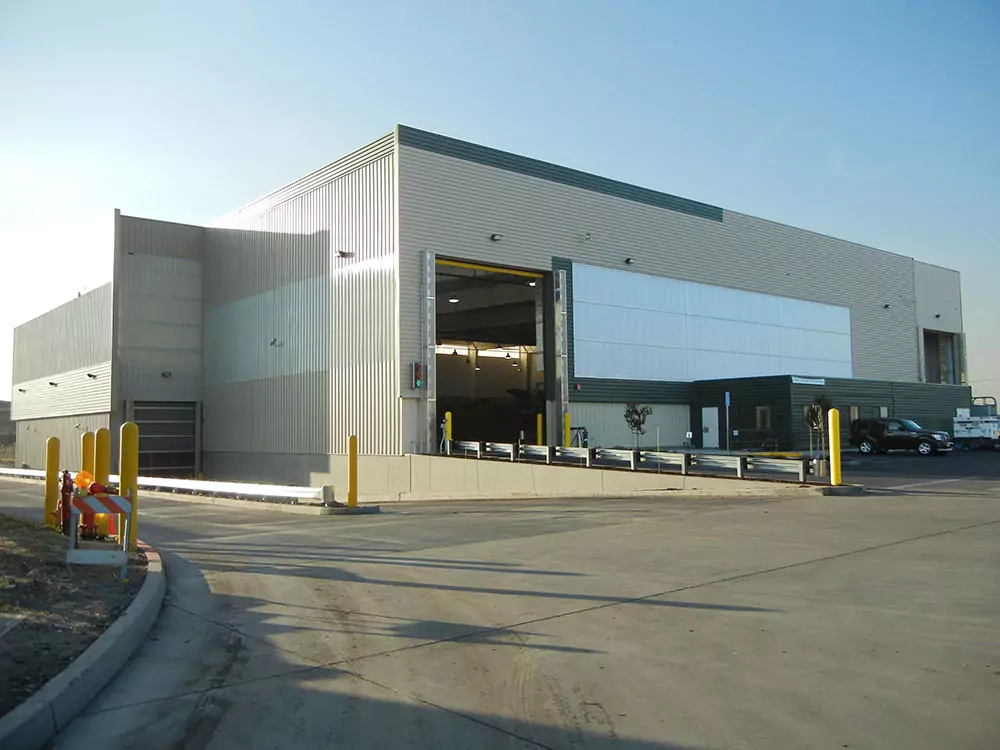The Eco-Conscious Appeal of Prefab Warehouses

In recent years the global landscape of industrial construction has been reshaped by a growing emphasis on Environmental sustainability Businesses across various industries are now seeking eco-conscious solutions for their warehouse needs, and one option that has gained significant Traction is a prefab warehouse These innovative structures offer numerous environmental Benefits making them an appealing choice for Environmentally-minded businesses
A Sustainable Solution
Prefab warehouses, also known as Pre-engineered or prefabricated steel buildings, have emerged as a sustainable alternative to traditional brick-and-mortar warehouses. These structures are designed fabricated Or assembled off-site before being transported and erected at the desired location This construction method reduces waste, energy consumption, and overall environmental impact
Energy Efficiency
One of the primary eco-conscious advantages of prefab warehouses lies in their energy efficiency. These buildings are designed with insulation, ventilation, and lighting systems that minimize energy consumption. Using reflective roofing materials can also reduce heat absorption, lowering the need for cooling systems during hot summer months. These energy-saving features reduce business operational costs and contribute to a smaller carbon footprint.
Material Efficiency
Traditional warehouses often require significant raw materials, including concrete and wood, which can have a substantial environmental impact. In contrast, prefab warehouses are constructed using steel, a highly recyclable material that can be used numerous times without losing structural integrity. Using steel in this warehouse construction reduces the demand for new resources and minimizes waste, aligning with the principles of sustainable development.
Reduced Construction Waste
Prefab warehouses are manufactured in controlled environments, allowing for precise planning and minimizing construction waste. Traditional construction sites often produce large amounts of waste, including excess materials, packaging, and debris. Prefab warehouses generate significantly less waste because the building components are fabricated precisely and assembled on-site with minimal cutting or alterations.
Solar Panel Integration
To further enhance their eco-conscious appeal, prefab warehouses can be designed to incorporate solar panels on their roofs. Solar energy systems provide a renewable source of electricity, eliminating the dependence on fossil fuels and decreasing greenhouse gas emissions. Using solar panels lowers operating costs and demonstrates a commitment to sustainable practices.
Sustainable Site Planning
In addition to their energy-efficient design, prefab warehouses can be strategically located to reduce their environmental impact. Businesses can choose sites that minimize the need for extensive land clearing, thereby preserving natural habitats and minimizing disruption to local ecosystems. Furthermore, these warehouses can be designed to have minimal light pollution, which is essential for preserving the natural nocturnal environment and protecting wildlife.
Adaptability and Longevity
Prefab warehouses are known for their adaptability and longevity. Unlike traditional warehouses, which may become obsolete or require extensive renovations over time, prefab warehouses can easily be modified or expanded to accommodate changing business needs. This adaptability decreases the need for new construction and minimizes the environmental impact of building additional facilities.
Low Maintenance Requirements
Another eco-conscious advantage of prefab warehouses is their low maintenance requirements. These buildings’ durable steel construction and high-quality finishes ensure their longevity with minimal upkeep. Reduced maintenance needs translate into fewer resources required for repairs and maintenance, contributing to the overall sustainability of the structure.
Local Economic Benefits
It’s worth noting that the eco-conscious appeal of prefab warehouses extends beyond their environmental advantages. These structures can also benefit local economies by creating manufacturing, transportation, and construction jobs. By supporting local businesses involved in prefab warehouse production, companies can contribute to their communities while pursuing sustainable warehouse solutions.
Conclusion
As businesses increasingly recognize the importance of sustainability, the prefab warehouse has emerged as an eco-conscious solution for meeting their storage and logistical needs. These structures offer energy efficiency, reduced construction waste, and material efficiency, all contributing to a smaller carbon footprint. Additionally, their adaptability, low maintenance requirements, and potential for solar panel integration make them a compelling choice for businesses committed to environmental stewardship. By opting for prefab warehouses, organizations can lessen their ecological footprint and showcase their unwavering commitment to sustainable principles in the continually evolving field of industrial construction.

Similar Posts
iMedia Online Retail Summit Gold Coast, Australia
Pearl WordPress Theme: Is It the Right Choice for Your Website?
Is TesterBuzz Authentic Testing Software? Detailed Review